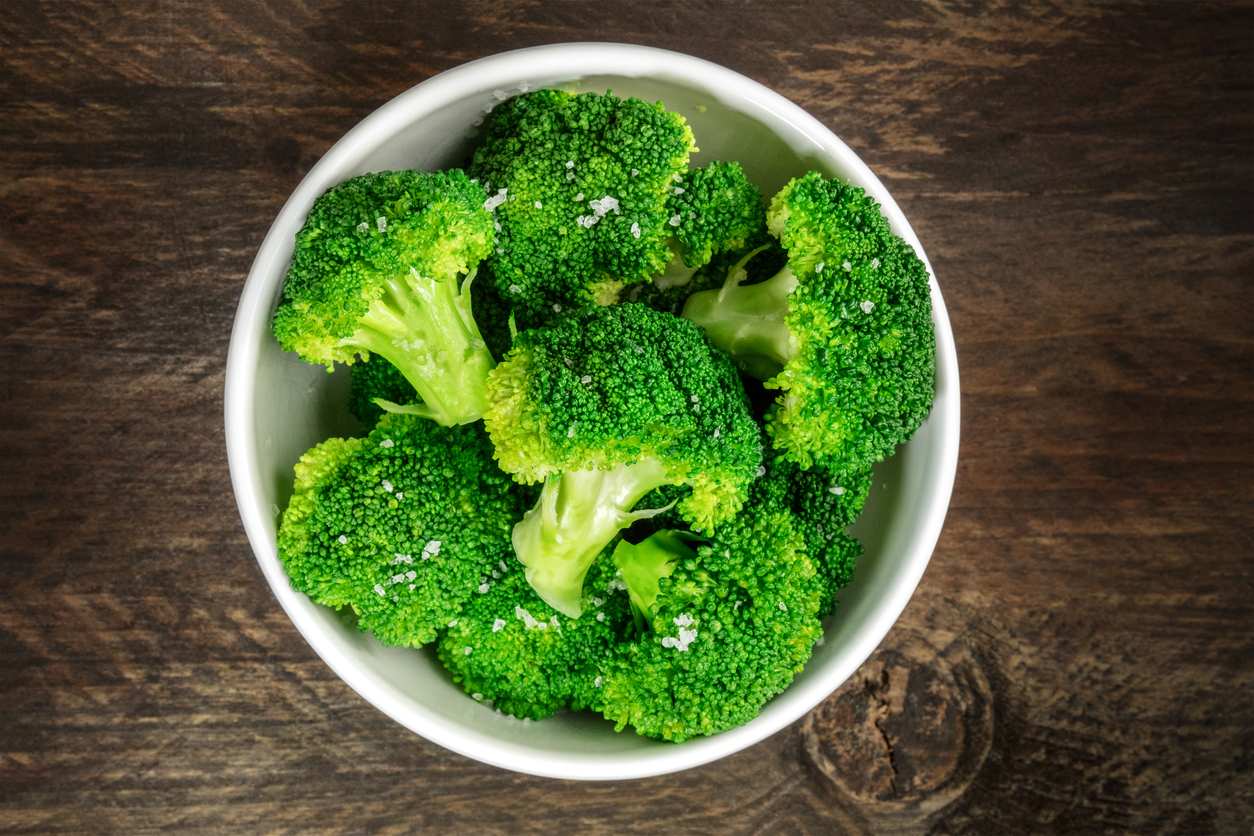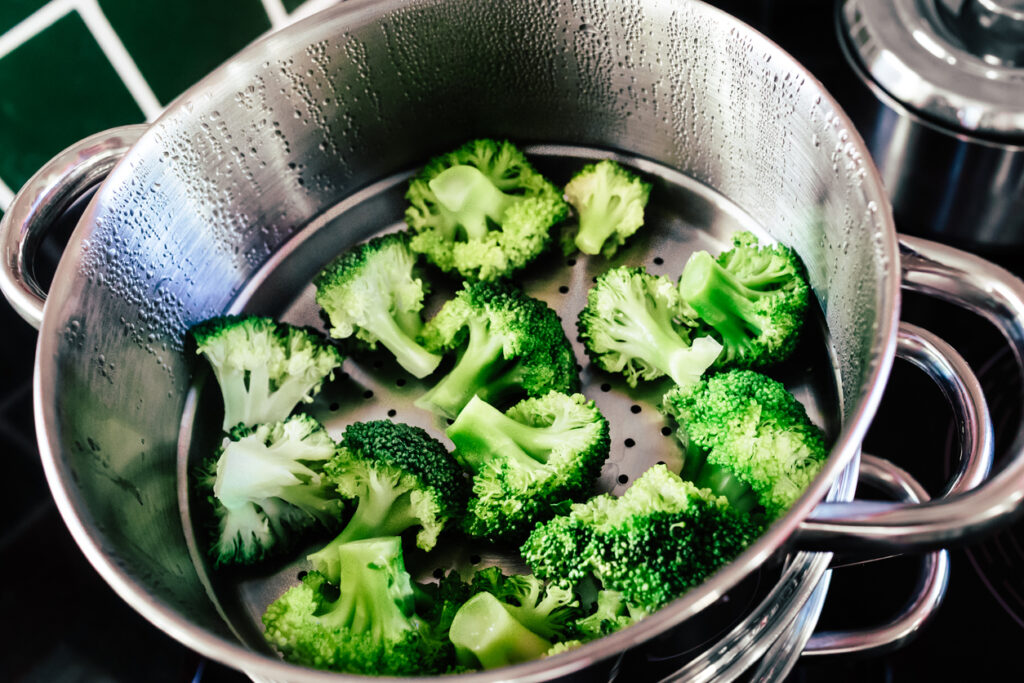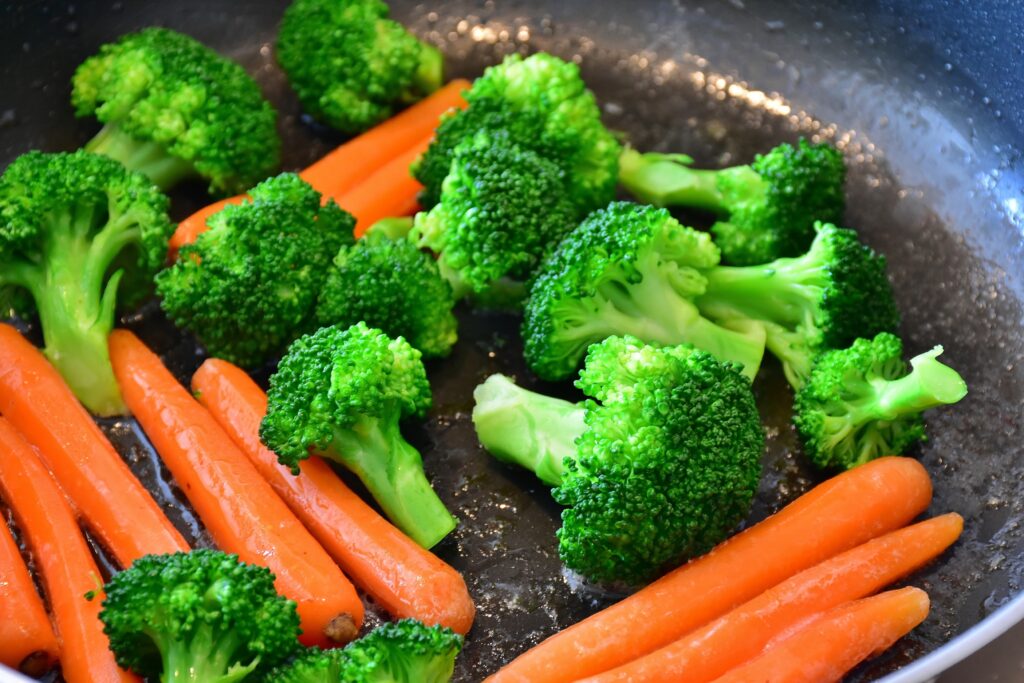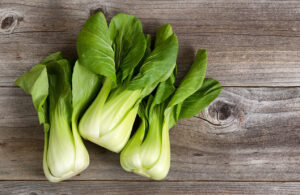How Long Does Cooked Broccoli Last? | Storing Guide

You made some cooked broccoli as a side dish for dinner last night, but for how long can you safely feed the leftover broccoli to your family? How do you properly store your cooked broccoli? Read this comprehensive article to learn how to properly store broccoli, how long it is safe to eat, and the nutritional value of various cooking methods.

- What is the best way to store cooked broccoli in the refrigerator?
- How long does cooked broccoli last in the refrigerator when properly stored?
- How do you reheat refrigerated cooked broccoli?
- How do you freeze cooked broccoli?
- How long does cooked broccoli last in the freezer when properly stored?
- How do you reheat frozen cooked broccoli?
- Nutritional Value of Broccoli
- Is raw broccoli healthier than cooked broccoli?
- Is store bought frozen broccoli healthy?
- Is steamed broccoli healthy?
- Is roasted broccoli healthy?
- Is boiled broccoli healthy?
- Can you roast store bought frozen broccoli?
- Tips for Buying and Choosing Broccoli
- More Articles about Shelf Life and Proper Food Storage
What is the best way to store cooked broccoli in the refrigerator?
To properly store cooked broccoli in the refrigerator and maintain its quality, follow these steps:
- Cooling Process:
- Allow the cooked broccoli to cool to room temperature before refrigerating. This helps prevent condensation inside the container, reducing the risk of bacterial growth.
- Airtight Containers:
- Transfer the cooled broccoli into airtight containers. Airtight containers prevent the absorption of odors from the refrigerator and help maintain the broccoli's flavor.
- Shallow Containers:
- Use shallow containers to store the broccoli. This allows for faster cooling and ensures that the broccoli cools uniformly, reducing the risk of bacterial growth.
- Damp Paper Towel:
- Place a damp paper towel in the container with the broccoli. This helps maintain the vegetable's moisture without making it overly wet, preserving its crispness.
- Plastic Wrap or Plastic Bag:
- Alternatively, you can wrap the broccoli in plastic wrap or place it in a plastic bag. Ensure that it's sealed tightly to prevent moisture loss.
- Refrigerator Shelf Placement:
- Store the containers or wrapped broccoli on a refrigerator shelf, not in the door. The door is subject to temperature fluctuations, and placing food there may lead to uneven cooling.
- Labeling:
- Label the container with the date of preparation. This helps you keep track of how long the broccoli has been stored and ensures that you consume it within the recommended timeframe.
By following these steps, you can store cooked broccoli in the refrigerator in a way that preserves its texture, flavor, and nutritional value for an extended period. Remember to consume it within 3 to 5 days for the best quality.
How long does cooked broccoli last in the refrigerator when properly stored?
Here are some things to consider when deciding if you should serve your leftover cooked broccoli:
- Shelf Life and Best Quality:
- The shelf life of cooked broccoli in the refrigerator ranges from 3 to 5 days when stored appropriately (see above for proper storage instruction). Consuming it within this timeframe guarantees the best quality and taste.
- Signs of Spoilage and Color Changes:
- Consistent monitoring for signs of spoilage is crucial. These signs may include an off smell, unpleasant odor, limp florets, or noticeable color changes. Detecting any of these indicators prompts the advisable course of action – discarding the broccoli.
- Health Risks and Mold Growth:
- It's essential to be aware of potential health risks associated with bad broccoli. Mold growth is a clear sign that the broccoli has surpassed its prime. Mold can produce mycotoxins, posing health risks if consumed.
How do you reheat refrigerated cooked broccoli?
Reheating refrigerated broccoli is a straightforward process that can revitalize its flavor and texture.
- Reheating Methods and Olive Oil:
- The most common reheating methods include using the microwave or stovetop. Adding a touch of olive oil during stovetop reheating not only enhances the flavor but also introduces a healthy element to the dish.
- Experiment with Different Methods:
- Experimenting with different reheating methods is encouraged. Discovering your favorite way to reheat broccoli can make it a more enjoyable experience. For added zest, consider incorporating red pepper flakes during reheating for a subtle kick.
How do you freeze cooked broccoli?
Freezing cooked broccoli extends its shelf life, providing an efficient solution for those looking to minimize food waste.
Freezing cooked broccoli is a convenient way to extend its shelf life while preserving its nutritional value. Follow these steps to freeze cooked broccoli properly:
- Cooling Process:
- Allow the cooked broccoli to cool to room temperature. This step is crucial to prevent the formation of ice crystals during the freezing process.
- Cut into Portions:
- Cut the cooked broccoli into individual-sized portions or the desired size for future use. This allows for easier thawing and portion control.
- Heavy-Duty Freezer Bags or Containers:
- Use heavy-duty freezer bags or airtight containers specifically designed for freezing. Ensure the containers are clean and dry before packing the broccoli.
- Remove Excess Air:
- Squeeze out as much air as possible from the freezer bags before sealing them. This minimizes the risk of freezer burn and helps maintain the broccoli's quality.
- Labeling:
- Label each bag or container with the date of freezing. This helps you keep track of how long the broccoli has been stored in the freezer.
- Flash Freezing (Optional):
- Consider flash freezing individual broccoli pieces on a baking sheet before transferring them to bags or containers. This prevents the pieces from sticking together, making it easier to take out the desired amount later.
- Freezer Shelf Placement:
- Place the labeled bags or containers in the freezer. Try to position them on the freezer shelf where the temperature remains consistently low.
- Avoid Overcrowding:
- Avoid overcrowding the freezer, as proper air circulation is essential for maintaining the quality of frozen foods.
- Thawing Process:
- When ready to use the frozen broccoli, thaw it in the refrigerator overnight. Thawing gradually helps preserve the texture and flavor.
By following these steps, you can freeze cooked broccoli in a way that ensures its quality and makes it convenient for future use in various recipes. Properly stored, frozen cooked broccoli can last for about 8 to 12 months.
How long does cooked broccoli last in the freezer when properly stored?
Cooked broccoli, when stored appropriately, can maintain good quality in the freezer for approximately 8 to 12 months. Proper sealing of bags or containers is imperative to avoid freezer burn, which can compromise the texture and taste.
How do you reheat frozen cooked broccoli?
Reheating frozen broccoli necessitates specific steps to the best texture and taste.
- Thawing Process and Refrigerator:
- Gradual thawing in the refrigerator overnight is the recommended process for thawing frozen broccoli. This method helps preserve the broccoli's texture during the thawing process.
- Reheating Options:
- Similar to reheating refrigerated broccoli, the microwave or stovetop methods can be employed for frozen broccoli. Ensuring even heating is crucial to retain the desired flavor.

Nutritional Value of Broccoli
Broccoli is a nutrient-dense vegetable that provides a variety of essential vitamins, minerals, fiber, and antioxidants. Here is an overview of the nutritional value of broccoli per 1 cup (approximately 156 grams) of raw broccoli:
- Protein:
- Broccoli is a source of plant-based protein. One cup provides approximately 3.7 grams of protein, contributing to your daily protein intake.
- Carbohydrates:
- Broccoli is relatively low in carbohydrates. One cup contains about 11 grams of carbohydrates, with a significant portion coming from dietary fiber.
- Dietary Fiber:
- Broccoli is an excellent source of dietary fiber, aiding in digestion and promoting a feeling of fullness. One cup provides approximately 3.7 grams of fiber.
- Fat:
- Broccoli is very low in fat. One cup contains only about 0.6 grams of fat, making it a healthy choice for those watching their fat intake.
- Vitamins:
- Broccoli is rich in various vitamins, including:
- Vitamin C: One cup provides more than 100% of the recommended daily intake, supporting immune function and collagen synthesis.
- Vitamin K: Broccoli is a significant source of vitamin K, crucial for blood clotting and bone health.
- Vitamin A: Broccoli contains beta-carotene, a precursor to vitamin A, which is important for vision and skin health.
- Vitamin B6: Important for metabolism and brain development.
- Broccoli is rich in various vitamins, including:
- Minerals:
- Broccoli contains essential minerals, including:
- Potassium: Important for maintaining blood pressure and electrolyte balance.
- Manganese: Involved in bone formation and metabolism.
- Phosphorus: Essential for bone health.
- Magnesium: Contributes to muscle and nerve function.
- Broccoli contains essential minerals, including:
- Antioxidants:
- Broccoli is rich in antioxidants, such as sulforaphane and quercetin, which have anti-inflammatory and potential cancer-fighting properties.
- Other Nutrients:
- Broccoli contains small amounts of various other nutrients, including calcium, iron, zinc, and selenium.
Including broccoli in your diet provides a range of health benefits, including support for the immune system, improved digestion, and protection against chronic diseases. Additionally, its low-calorie and high-fiber content make it an excellent choice for weight management.
Is raw broccoli healthier than cooked broccoli?
Both raw and cooked broccoli offer unique nutritional benefits, and the healthiness of each depends on individual preferences, dietary needs, and health goals. In general fresh vegetables have more nutritional value than cooked. Here's a comparison of raw and cooked broccoli:
Raw Broccoli:
- Vitamin C Content: Raw broccoli is an excellent source of vitamin C. However, vitamin C is water-soluble and sensitive to heat. Eating broccoli in its raw state preserves its vitamin C content.
- Enzymes and Antioxidants: Some enzymes and antioxidants may be more abundant in raw broccoli. For example, myrosinase, an enzyme that helps convert glucosinolates into potentially beneficial compounds like sulforaphane, is more active in raw broccoli.
- Fiber: Raw broccoli retains its full fiber content, which aids in digestion, helps maintain a healthy weight, and supports gut health.
- Crunch and Texture: Raw broccoli provides a crunchy texture, which some individuals prefer for salads, snacks, or dipping in hummus or other healthy dips.
Cooked Broccoli:
- Nutrient Availability: While cooking broccoli can lead to some nutrient loss, it can also enhance the availability of certain nutrients. For example, lightly cooking broccoli can make some nutrients more digestible, including beta-carotene and lutein.
- Sulforaphane Formation: While cooking may partially reduce myrosinase activity, it can also enhance the formation of sulforaphane. Cutting or crushing raw broccoli before cooking activates myrosinase, leading to the production of sulforaphane.
- Digestibility: Cooking broccoli can make it easier to digest for some individuals, as it breaks down tough fibers and makes the vegetable more tender.
- Variety in Preparations: Cooking allows for a variety of preparations, including steaming, sautéing, roasting, or boiling, which can add diversity to meals and make it more enjoyable.
The choice between raw and cooked broccoli ultimately depends on personal preferences and how you prefer to incorporate this nutritious vegetable into your diet. Including a mix of both raw and cooked broccoli in your meals can provide a range of nutrients and health benefits. Enjoying broccoli in various forms ensures a diverse intake of its valuable compounds, promoting overall well-being.
Is store bought frozen broccoli healthy?
Opting for store-bought frozen broccoli can be a healthy choice due to its peak freshness at the time of freezing, which locks in essential nutrients such as vitamin C. I like to choose frozen organic broccoli florets. Store-bought frozen broccoli maintains its nutritional value and can be considered among the best options for quick and convenient access to this nutritious vegetable.
Is steamed broccoli healthy?
Steaming fresh broccoli is not only a healthy cooking method but also a delicious way to enjoy this nutrient-packed vegetable. Steaming preserves the bright green color of broccoli, indicating the retention of vital nutrients such as vitamin K. This cooking method aligns with the preference for maintaining the highest nutritional value.
Is roasted broccoli healthy?
Roasting fresh broccoli introduces a different flavor profile and can still be a healthy option, despite some nutrient loss during the cooking process. Broccoli is a versatile vegetable that adapts well to various cooking methods. While roasting may lead to some nutrient loss, the overall health benefits of broccoli remain intact, making it a tasty and nutritious choice.
Is boiled broccoli healthy?
Yes, boiled broccoli can be a healthy and nutritious addition to your diet.
To maximize the nutritional benefits when you boil broccoli, consider the following tips:
- Avoid Overcooking: Overboiling can result in nutrient loss. Cook broccoli until it is tender but still vibrant in color.
- Retain Cooking Water: If possible, use the water from boiling broccoli in soups or stews to capture some of the nutrients that leach into the water.
- Pair with Healthy Ingredients: Enhance the flavor and nutritional profile of boiled broccoli by adding ingredients like olive oil, garlic, herbs, or a squeeze of lemon juice.
Can you roast store bought frozen broccoli?
Roasting store-bought frozen broccoli is entirely feasible with proper preparation. Simply place the frozen broccoli florets on a large sheet pan, making sure they are not touching. Do not use parchment paper as contact with the sheet pan helps to create a nice crispy texture on your broccoli florets. Roast and season as your would fresh broccoli. See this easy one pan gnocchi recipe which includes roasting frozen broccoli.
Tips for Buying and Choosing Broccoli
Making informed choices at the grocery store ensures that you bring home the best-quality broccoli for your meals. Choose a fresh broccoli head with a bright green color and firm, tightly packed florets. Avoid any signs of brown spots or limp stems, ensuring that the broccoli is at its peak freshness. Don't discard the broccoli stem; it's a versatile and edible part of the vegetable. Peel and slice it for stir-fries or soups.
More Articles about Shelf Life and Proper Food Storage




